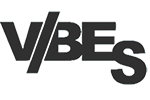Setup, Onboarding and Learning Outcomes
 About the loop4: This session is about wrapping learnings and course experience and to contribute to further iterations of the course.
About the loop4: This session is about wrapping learnings and course experience and to contribute to further iterations of the course.
Therefore we apply useful retrospective techniques on two main tasks: creation of a “checklist for practice” (for future collaborators) and retrospection on the class from a facilitator’s perspective: methods used, tools deployed aso. As conclusion learners can celebrate together their achievements and receive their diploma.
 Learning outcomes in loop 4: By the end of session 4 leaners know and experienced how meaningfully use retrospective techniques for feedback, improvement and development. Each student contributes a least once to the group process and feels encouraged and more confident to apply retrospecton in teamwork processes. Learners know how to apply the learnings in their own (business) context. At the end of the day learners reflect on the VIBES class in retrospective.
Learning outcomes in loop 4: By the end of session 4 leaners know and experienced how meaningfully use retrospective techniques for feedback, improvement and development. Each student contributes a least once to the group process and feels encouraged and more confident to apply retrospecton in teamwork processes. Learners know how to apply the learnings in their own (business) context. At the end of the day learners reflect on the VIBES class in retrospective.
 Recommended meeting format: This is a virtual learning lab. It can be applied also at site without any changes in teaching and assignments. Like loop 1 this could be a final contact day to wrap things up and celebrate the course experiences.
Recommended meeting format: This is a virtual learning lab. It can be applied also at site without any changes in teaching and assignments. Like loop 1 this could be a final contact day to wrap things up and celebrate the course experiences.
 Recommended meeting length: 3 hours with 2 extended breaks and sideline activities (see additional materials)
Recommended meeting length: 3 hours with 2 extended breaks and sideline activities (see additional materials)
Breaks: Each instructor will decide based on group dynamics when it is proper time for break but we recommend to have at least two 10 minutes break after every 60 minutes of work.
![]() For more detailed guideline please consult also our instructor manual available HERE
For more detailed guideline please consult also our instructor manual available HERE
Retrospection techniques
 Recommended section length: up to 60 minutes
Recommended section length: up to 60 minutes
 Pre-class assignment: For this loop students are required to prepare a pre-class assignment. Please consult assignments toolbox HERE
Pre-class assignment: For this loop students are required to prepare a pre-class assignment. Please consult assignments toolbox HERE
 Introduction (30’ max)
Introduction (30’ max)
(10′) At first facilitation should set the scene and give a short overview reviewing loops 1 to 3 from a teachers perspective
- Methods and tools used (3′)
- Recap on the whole course concept (max. 7′)
(15′) Then give ground for learners workload and assignement,
as well as adress and appreciate
- Learning diaries
- Group reflection (short)
- Results, appreciation and awarding of PechaKucha Assignment
 Input section: Retrospection techniques (25’)
Input section: Retrospection techniques (25’)
Instruction
(10’) With the lecturer as a instructor the class will learn the cornerstones of ready to use retrospective techniques to try within teams. Please see the class slidedeck for further teaching notes the subject.
Application
(15’) Enable for / ask for students to share their own experiences (and let them retrospect and give feedback on the PechaKucha Assignment in breakout groups.

Break 1: Well, that was quite a lot of work for now, let’s have a 10’ break and get some refreshings.
 After the break (5’): Use some energizer / activity method to bring the class back together (i.e. make them move, quiz, “my thing”, “touch something blue” a.s.o.)
After the break (5’): Use some energizer / activity method to bring the class back together (i.e. make them move, quiz, “my thing”, “touch something blue” a.s.o.)
Create a checklist (for future virtual collaborators)
 Recommended section length: up to 1.5 hour
Recommended section length: up to 1.5 hour
 Agenda overview (3 min):
Agenda overview (3 min):
 Transfer 1 – Retrospective from a students view (30’)
Transfer 1 – Retrospective from a students view (30’)
a. Group Assignment (20-25’)
It’s the assignment to collaborate in groups (breakout groups) in order to create a checklist and advise (future) virtual collaborators. Use of retrospective technique (1)
Task: Engage, discuss, consent and boil it down. Agree on three subjects / advices. Ask yourself: “What will/can you apply in practice and how?” Students should be as precise as possible and apply it into their business context:
“Susi wants to apply PechaKucha in practice (…) how, to whom, why, when, where?
b. Class dialogue (10’-15’) Short summary and discussion of task (1) as class dialogue: Present 1 example from each breakout group (“best practice”) from what to be applied in the near future, moderated by facilitation
 Facilitator’s summary of transfer 1 (3’):
Facilitator’s summary of transfer 1 (3’):
Facilitation makes a short summary and appreciates the contribution.
 (Facilitation get ready to offer a short bio break / energizer. (+10’))
(Facilitation get ready to offer a short bio break / energizer. (+10’))
Transfer 2 (20-25’) Retrospective from a trainers view
 Application
Application
This transfer is twofold:
2a: Chat Poll: What contents to retain / omit? (use Mentimeter.com)
2b: Group assignment, organized again in breakout groups: Co-create on a spreadsheet (google docs). Use of retrospective technique (2)
– Loop 1-3
– Assignments
Main question to tackle:
What / how would you have done differently in the master class?
- Contents
- Tools / methods
- Guiding
- …
 Facilitator’s summary of transfer 2 (4’):
Facilitator’s summary of transfer 2 (4’):
Reflexion, short feedback, appreciation of output, effort and time.
Facilitation makes a short summary and appreciates the contribution. Your inputs / findings are subject to further development of this course (our mission: lifelong learning)
Transition to accordion 4 (1’)
Landing & Course Wrap-up
 Recommended section length: up to 20 minutes
Recommended section length: up to 20 minutes
 Landing of the course: (5 Min.)
Landing of the course: (5 Min.)
Flash poll: 1 Scale – 4 Questions
After reflexion on students and lecturers perspective we are ringing in the final round and nail it down to 4 short questions which brings out the jam for facilitation:
With a scale “strongly disagree – strongly agree”
- I would attend this class again
- I am taking a follow up course
- I recommend this master class to a friend
- I would pay for the course
Facilitation doesn’t comment on the results but comes in with a final input.
 Closing speech and (virtual) diploma award (10’)
Closing speech and (virtual) diploma award (10’)
That’s it! Facilition appreciates for time
dedication, energy, creativity, future success.
A virtual class diploma is awarded.
Everybody is invited to speak out loud one more time.
Time to say goodbye and have success in your future careers.
When it comes to virtual intercultural team work you are all well prepared!
Additional Resources
Retrospektivne tehnike za zajednički razvoj
Retrospektive su moderirani sastanci u projektu na kojima tim promišlja suradnju izvan svakodnevnih radnih rutina i razrađuje moguće pristupe za poboljšanje. Redovite retrospektive sastavni su dio agilnih projekata i također dovode do optimizacije timskih procesa u tradicionalno planiranim projektima.
- https://miro.com/guides/retrospectives/ideas-games
- bit.ly/3uCvf99
- https://www.youtube.com/watch?v=QHLC0mBAEUw
- (…)
- Icebreakers, Energizers, Warm-ups i Closers • Icebreakers su kratke aktivnosti na početku tečaja ili nastave koje uvode, stvaraju željenu klimu za učenje, prikupljaju informacije o studentima i njihovom prethodnom znanju ili iskomuniciraju razredne norme.
- Energizeri su kratke aktivnosti usred lekcije ili sata koje ponovno usmjeravaju pozornost učenika, potiču kognitivnu aktivnost ili vraćaju zamah.
- Zaključci su kratke aktivnosti na kraju sata ili lekcije koje prikupljaju povratne informacije o lekciji, provjeravaju razumijevanje, sažimaju koncepte, uvode probleme kritičkog razmišljanja ili premošćuju buduće lekcije. (izvor: bit.ly/3hgkdTP)
Predlošci (povratne informacije studenata, predložak diplome itd.)
- Ankete/ Mentimeter.com: https://www.menti.com/alpqktc4p8nx
- Whiteboard: https://app.mural.co/t/vibes8894/m/vibes8894/1669185699017/a12f1232775a292b0bf12f9004556a370f3f7c2d?sender=michaelforster0434
- Google Docs: https://docs.google.com/spreadsheets/d/1dW1rLGOuHiBHQGf6Vbi5usqFw1LjAhM7otNV_kZBsR0/edit?usp=share_link
- Diploma

